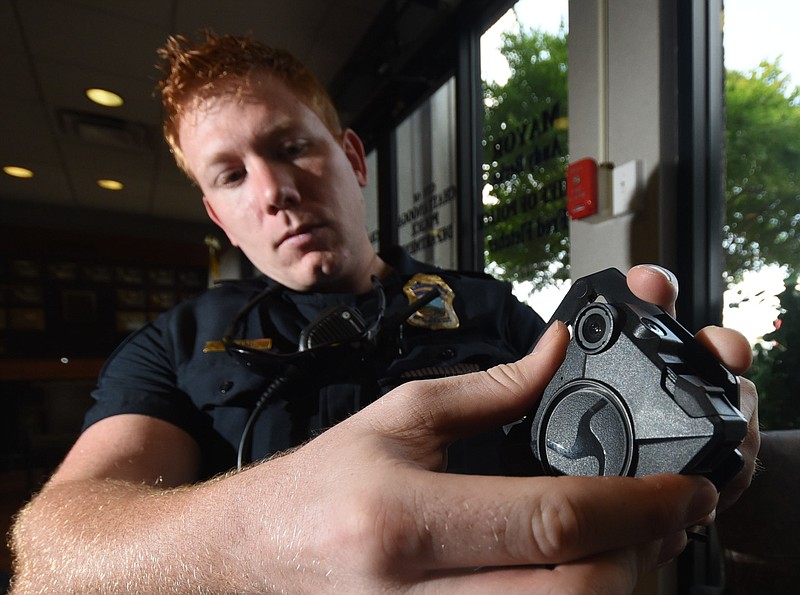The more eyes law enforcement officials can put on the bad guys the better.
In Chattanooga, it's a strategy that's apparently working, according to police.
Officials can't say how much credit cameras deserve, but thefts across the city were 12 percent lower in 2016 than in 2015. Thefts from vehicles dropped 5 percent over the same period.
Fifteen new surveillance cameras are being installed across the city to accentuate the 100 already in place to give police more immediate eyes on crime. The cameras are projected, once they are all up and running by April, to connect to the department's planned "Real Time Intelligence Center," which will allow police to track and respond to crime even as it happens.
Pair those cameras and the intelligence center hub with the high-resolution cameras now mounted on many patrol cars that automatically photograph license plates, and you have literally focused deterrence.
The license plate photographs are connected to special software where they can be compared with lists of plates associated with stolen vehicles and other investigations.
In other words, the manual work of an officer checking with state authorities to learn the owner of a car with a certain license plate and then matching it to a list of stolen cars is sped up immensely. The computer software, in turn, responds to a license number match with an audio and visual notice to the officer.
The police department also would like to deploy stationary plate readers - as was done for a time at Coolidge Park in 2009 - on streets in violence-prone areas. Officials say they could be instrumental in criminal investigations and intelligence gathering.
Even resident footage can be helpful, officials say. If police receive footage from a resident showing repeated activity in a certain area, they're likely to pay more attention to that area on routine patrol. Since thieves don't want a lot of company, they're liable to move their place of operation.
Yet while cameras are wonderful and can offer much in the way of help to law enforcement, they're no match for cooperative neighbors. Neighbors casting a wary eye for crime, for unusual activity, for people who don't belong, and reporting what they've seen, if necessary, to police are an even bigger deterrent.
After all, without cameras and without willing neighbors, police are flying blind in attempting to put a stop to the robbers and the car thieves, much less the perpetrators of far more violent crimes.
Indeed, to twist an old phrase, the eyes have it.
